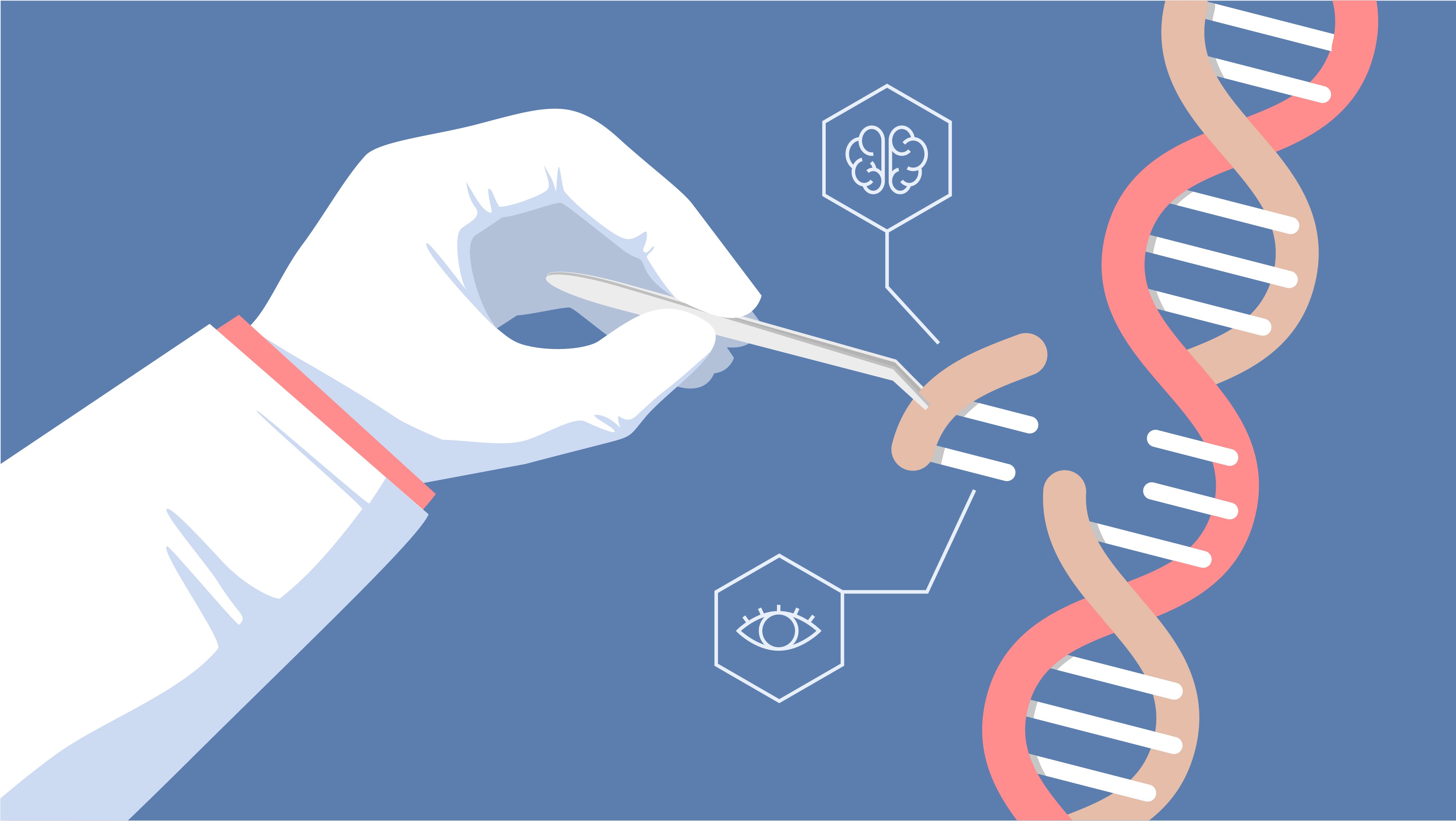
Researchers from Weill Cornell Medicine in New York are using CRISPR to edit genes within human sperm. These genetic changes could theoretically prevent diseases caused by genetic mutations inherited from men, such as infertility. In this controversial work, the team is focusing on editing a gene that increases one’s risk for various cancers. Although these experiments are just beginning and have not yet shown success, they have great potential in combatting genetic disorders.
“I think it’s important from the scientific point of view to investigate in an ethical manner to be able to learn if it’s possible,” said Gianpiero Palermo, a professor of embryology in obstetrics and gynecology at Weill Cornell Medicine, to NPR. Palmero also runs the Andrology Laboratory at Weill Cornell’s Center for Reproductive Medicine that is conducted the work.
In theory, it would be safer to edit DNA in the human sperm than in human embryos. It is possible to leave different cells unedited when using CRISPR on an embryo, but once one sperm cell is genetically edited, these changes would manifest in every resulting offspring cell.
Editing Genes to Reduce Cancer Risks
Palmero’s lab is working to edit the mutations in the BRCA2 gene, which is strongly correlated to an increased risk of breast, prostate, ovarian, and other forms of cancer. One of the biggest challenges in making these genetic changes to the sperm is delivering the CRISPR compound to the DNA in the cell. The sperm’s DNA is localized in the head region where it is difficult to insert the CRISPR tool, making researchers question whether the task is feasible.
“I think it will be very difficult to do,” claimed David Albertini, visiting scientist at Rockefeller University in New York City and editor of the Journal of Assisted Reproduction and Genetics.
“Nobody’s tried to do CRISPR on sperm before, so we have to try to figure out the right way to do it,” added June Wang, a lab technician who is conducting these experiments.
One possible way the team can introduce CRISPR to the sperm’s DNA is through electroporation. In this technique, an electrical shock is administered to cells to increase their permeability to drugs and other therapeutics, like CRISPR. Wang and colleagues first mix the sperm sample with the CRISPR tool that is designed to edit BRCA2, then deliver a 1,100-volt shock to the mixture. They are optimistic that this approach will successfully bring CRISPR inside of the sperm cells.
“I’m really hopeful we’ll be able to get it,” said Wang. “It’s just going to be a lot of work, a lot of testing and a long time, just because this hasn’t been done before.”
Controversy Surrounding CRISPR Gene Therapy
While many are hopeful as to how CRISPR gene therapy will improve modern medicine, others fear the ethical implications of such technology. By editing the genes of sperm cells, these researchers are making genetic modifications that will persist in successive generations, not just the immediate offspring.
Many believe that this will lead to the creation of “designer babies” with customized features and traits. Chinese researcher He Jiankui is still under public scrutiny for his use of CRISPR gene-editing in human embryos last year. He made a genetic modification that would theoretically give the children resistance to HIV infection, but his peers generally regarded this action as premature and irresponsible.
Nonetheless, these New York researchers see CRISPR as a valuable tool that is worth studying.
“If we can wipe out a particular gene, it would be incredible,” said Palermo. “Theoretically, in principle, this would be a major, major benefit to society.”
Others support the initiative as well, with the University of Pittsburgh School of Medicine professor Kyle Orwig saying, “Male infertility is a very common condition. And there are some diseases that are incredibly devastating to families. And for those diseases, for me, if you could get rid of it, why wouldn’t you get rid of it?”
.@NPRHealth’s Rob Stein visits a lab trying to use the powerful gene-editing tool #CRISPR to modify DNA in human sperm.
If successful, it could be used to prevent male infertility and fix genetic mutations.https://t.co/YcaQwK89Pl
— Joe Neel (@jneel) August 22, 2019







 © 2025 Mashup Media, LLC, a Formedics Property. All Rights Reserved.
© 2025 Mashup Media, LLC, a Formedics Property. All Rights Reserved.